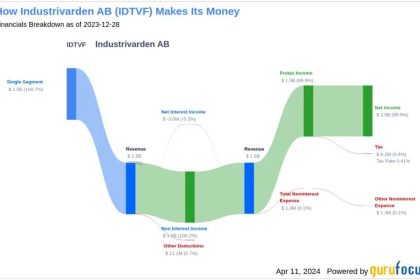A smoother rate path is preferable to a sharp up and down, allowing more time to assess data
The writer is vice-chair of Evercore ISI and a former member of the management committee of the New York Fed
With the US Federal Reserve almost certain to leave interest rates unchanged at its policy meeting later this month, the focus of central banker watchers has shifted to the other side of Atlantic.
The European Central Bank’s decision on whether to raise rates again at this week’s monetary policy meeting on Thursday looks finely balanced. There is less debate about the Bank of England, where a rate rise is rightly expected later this month but there is some possibility of a surprise pause.
Behind these near-term calls is a debate around how forward-looking monetary policy can afford to be at this juncture and how credible it is to substitute further rises with a policy of keeping rates high for longer. The issue is how such “high for longer” signalling would square with an approach that makes policy decisions data dependent and the desire of central banks to stay away from “forward guidance” on rates.
The Fed, though the most important of the central banks, may be the simplest to assess. It will pause in September and uphold the option to raise further with a stern and resolute tone providing cover for a gradual transition to policy on hold. It will only exercise the option to raise rates again if progress on inflation and rebalancing the labour market stalls amid stronger-than-expected growth.
Most of the debate is around whether the ECB will deliver a “hawkish pause” with signals that lean to raising rates again in October if inflation does not moderate notably further, or raise one more time with a more neutral signal going forward.
There are compelling reasons for the ECB to pause in September, with core inflation slowly turning lower, wage growth in line with projections and a spreading economic slowdown. The idea that the ECB should raise rates before the “window of opportunity” closes is nonsense: a central bank should never do something it could not justify doing a month or two later. But near-term inflation has been sticky and energy prices have moved up again. This could lead policymakers to deliver one more rise to send a hawkish signal to companies and unions.
The BoE is more interesting than market pricing — 80 per cent for another rise — suggests. In recent weeks, the bank’s leadership has sent dovish signals, seemingly to make an option to pause as early as September. The rise in unemployment in the three months to July ticks a key box for policymakers who think it will be necessary to open up some slack to moderate future wage and price inflation. But the data is not clear-cut and continuing rapid wage growth underlines the absence of a clear turn in domestically generated inflation so far. With higher oil prices set to nudge up headline inflation, risk management favours raising rates one more time in September. But a pause should not be ruled out, particularly if services inflation surprises to the downside.
In each case, the debate turns in part on the viability of substituting additional rate rises with a policy of keeping rates high for longer. BoE chief economist Huw Pill recently set out his preference for a lower peak but a longer hold — more “Table Mountain” and less “Matterhorn”. But ECB council member Isabel Schnabel has warned policymakers “cannot trade off a need for a further tightening of monetary policy today against a promise to hold rates at a certain level for longer”.
The answer is not black and white. In theory, a central bank can provide a certain amount of restraint by setting rates at significantly restrictive levels for a shorter period of time or more moderately restrictive levels for longer. A smoother rate path is preferable to a sharp up and down, allowing more time to assess data. When the market prices a rapid U-turn, it is often assuming the central bank will end up overtightening.
But in the real world the promise of restraint tomorrow from keeping rates high for longer is not a perfect substitute for acting today if the central bank’s credibility is strained and data suggests inflation risks becoming entrenched.
The ECB is probably better placed right now to substitute longer for higher than the BoE. Both struggle with how to reconcile high for longer with data dependence and an aversion to forward guidance on rates. This is misplaced. Central banks should always be comfortable communicating their “reaction function” — the strategy they think is likely to be appropriate to return inflation to target, and how the resulting rate path will be updated as new information comes in, so anchoring inflation expectations. This is not controversial forward guidance — it is central banking 101.
Source: Financial Times



